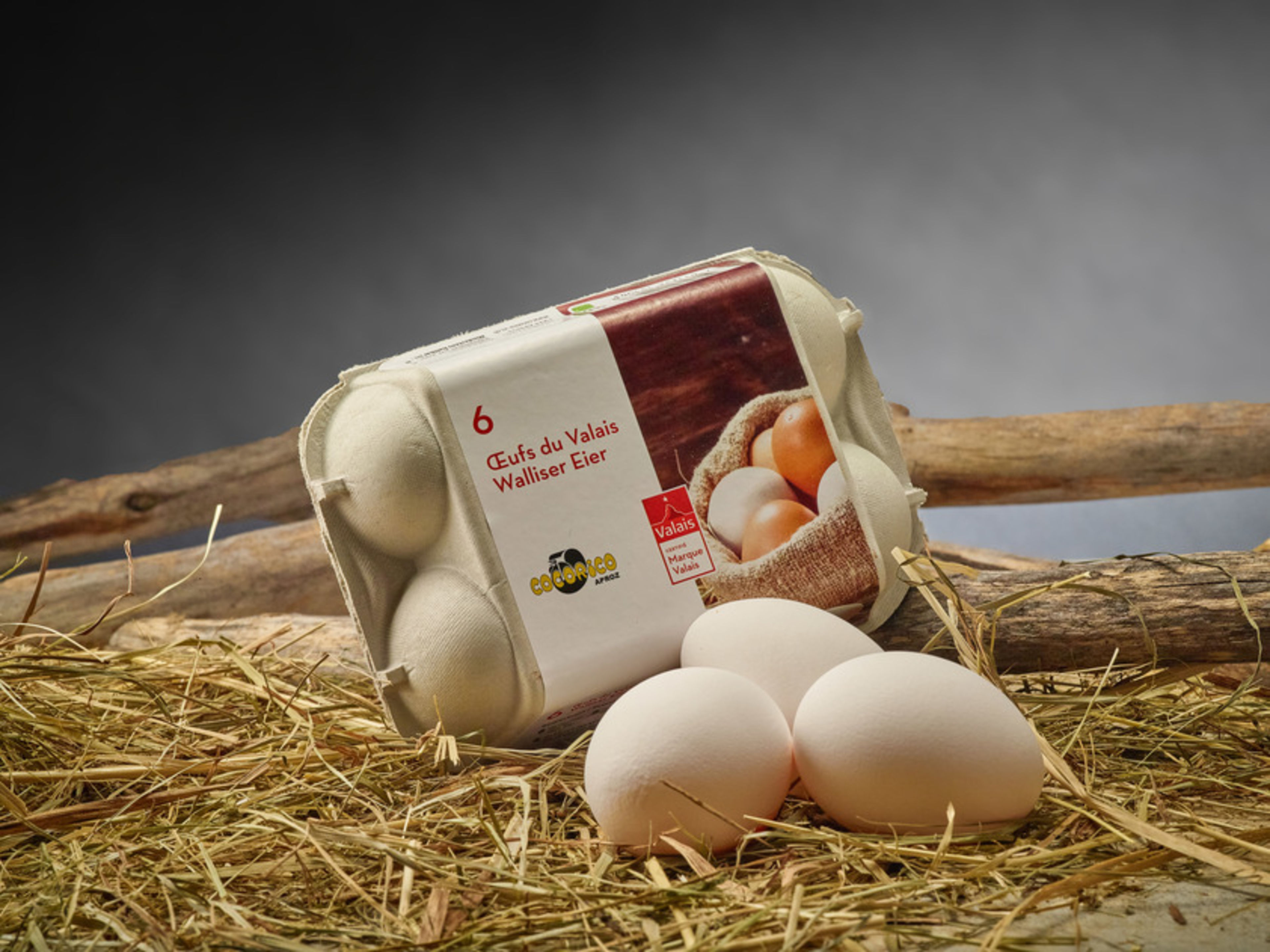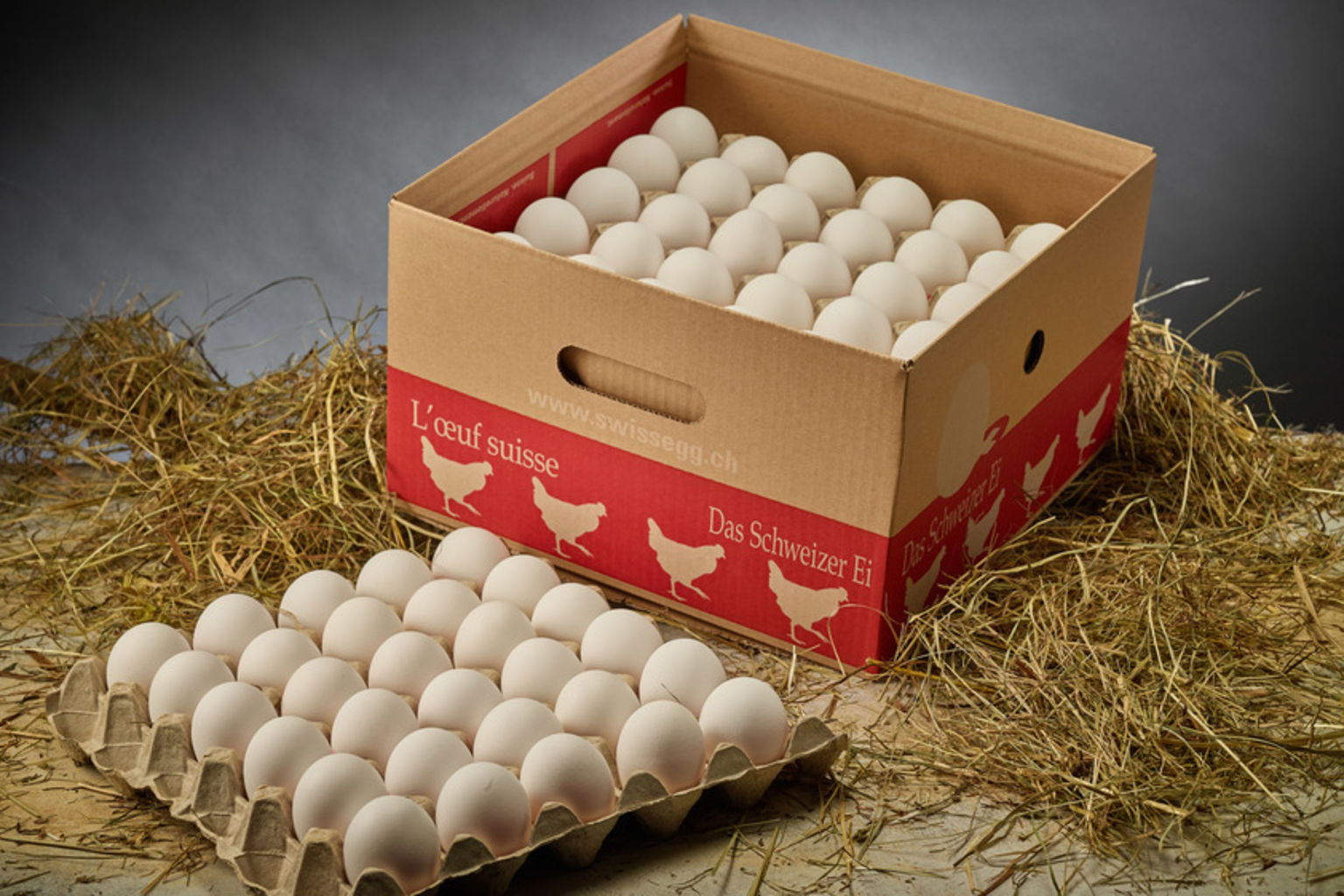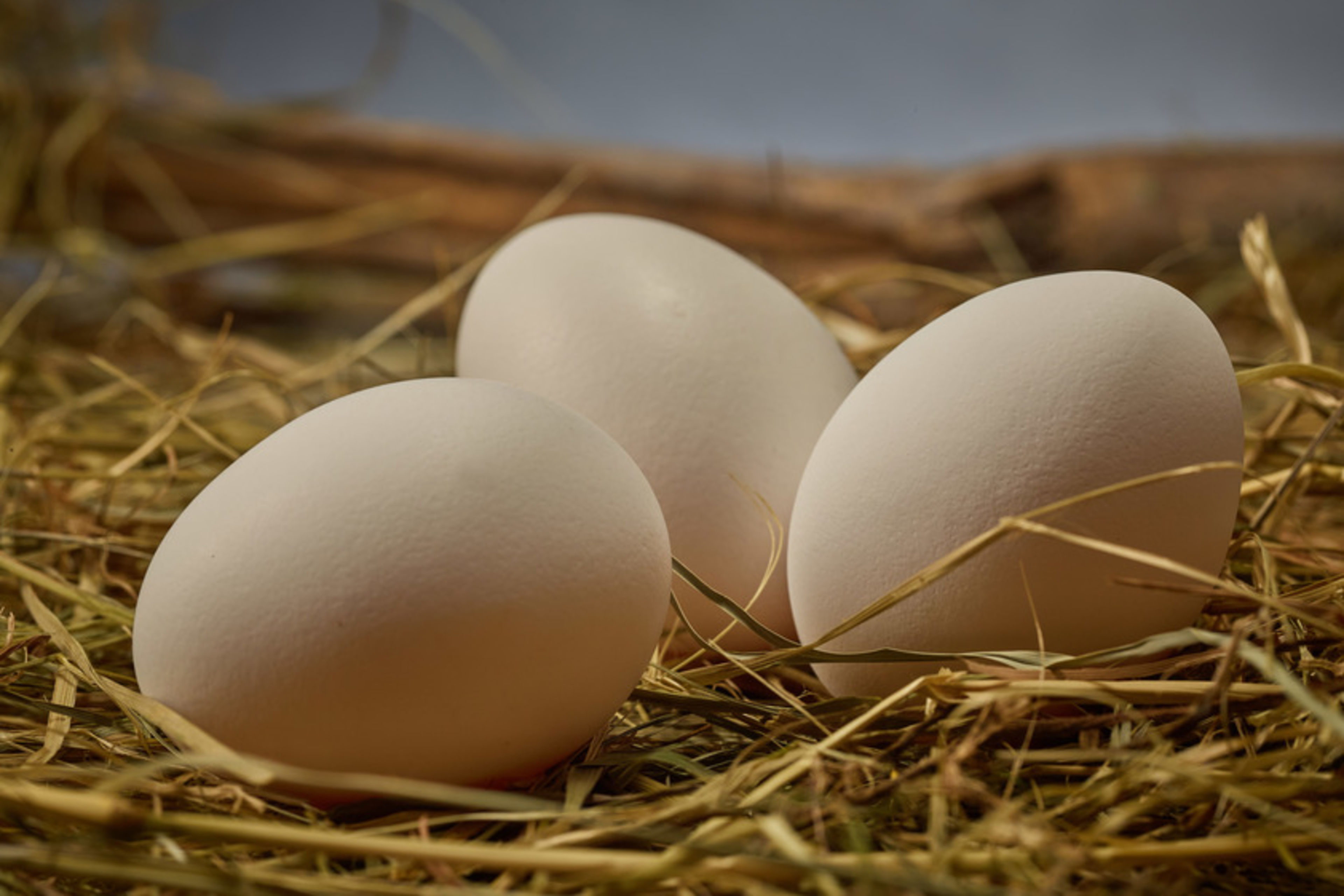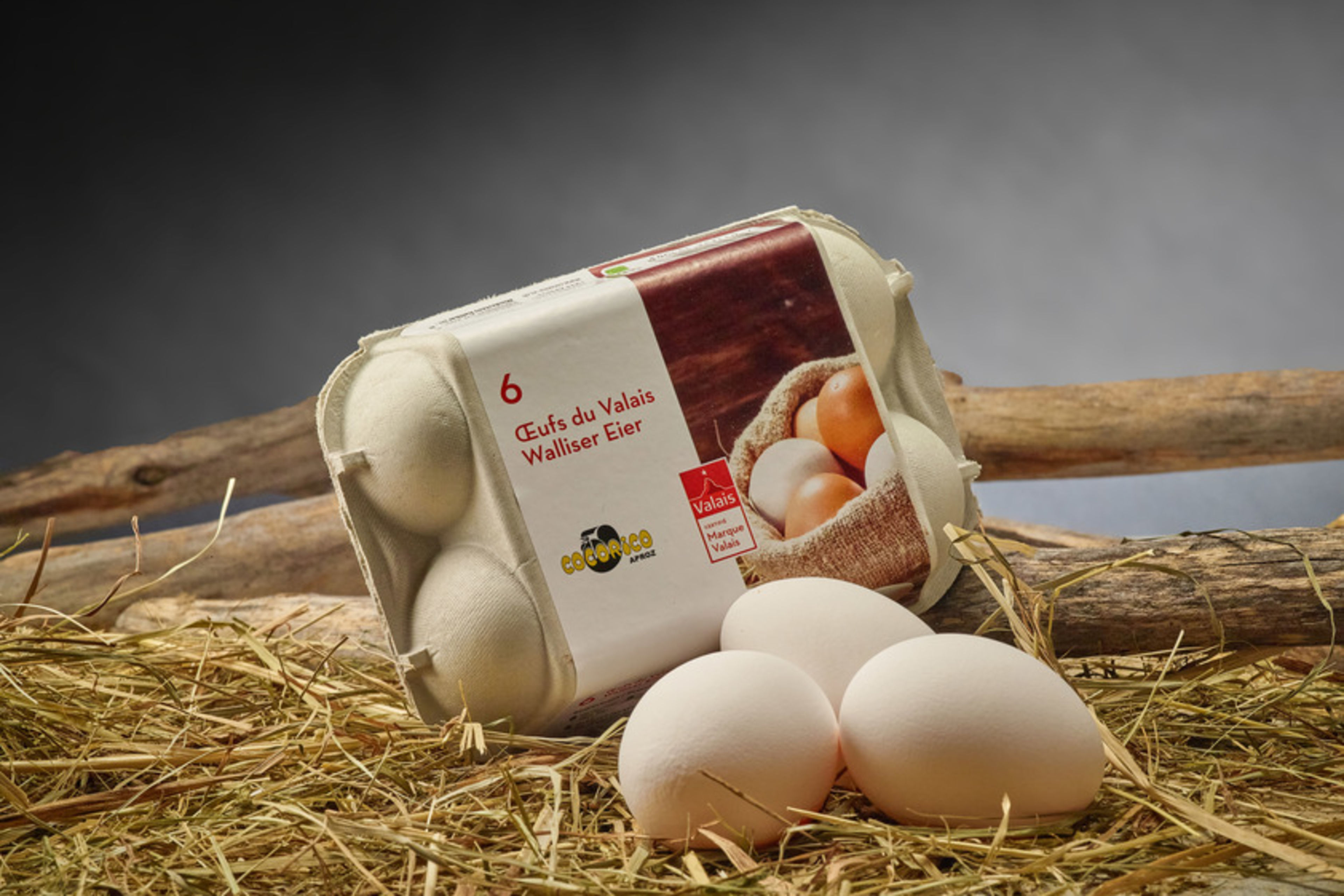The Valais egg: simple and authentic

A natural product of exceptional quality from producers for whom animal welfare is an absolute priority: this is the pledge made by COCORICO SA with regard to their new box for Valais-branded eggs. Launched in early 2021, the new packaging offers superior quality eggs, produced under conditions that better meet the ethological needs of the species by providing even more space and comfort.
Who is COCORICO SA?
Founded in 1976, this professional family-run company breeds its own laying hens and packages both their eggs as well as eggs from other local producers. Daniel Ulmann is a poultry farming specialist who qualified in Bern and is passionate about his work of which he knows everything there is to know. Daniel is thus in charge of the hens and the egg packaging, and runs the company together with his brother, Christophe Ulmann, who takes care of administration and logistics.
Valais eggs and animal welfare
Animal welfare is top priority for the COCORICO SA producers, which aim to provide the best possible life for their laying hens. These enjoy a great deal of space as well as a protected external area where they spend time daily. The chickens have unlimited access to water and feed, and their diet, which is 100% natural, is monitored and adapted according to their needs.
What are Valais eggs?
The company is constantly researching ways to develop and improve the quality it offers customers. As a result, it has created “Œufs du Valais” (“Eggs of Valais”), a box of eggs from selected Valais producers that provide their laying hens with extra space and comfort. This superior quality is the result of a great deal of work all along the line: after all, a happy hen will produce a better-quality egg.
Why don’t the chickens live outdoors all the time?
Chickens are not grazing animals. They like to scratch the soil, peck at what they find and rest on an elevated perch. Chickens that belong to COCORICO SA producers enjoy suitable facilities within hen houses which provide them with all their requirements – including floor areas they can scratch, perches and a continuous supply of food and water. Thanks to a spacious outdoor protected area, they can enjoy being outside 365 days a year and have access to pastures weather-permitting and when there is little risk of dangers such as parasites and avian influenza, in order to keep them safe and protect the quality of the eggs.
What are the advantages of Valais eggs?
Eggs are a natural product whose quality depends on factors such as farming methods and diet. Valais eggs prioritise animal welfare, quality of environment and respect for the work achieved by poultry farmers. Valais eggs are the result of a fairer, more sustainable form of production that requires additional investment on the part of the farmer to guarantee superior quality.
What is the best way to store eggs?
The freshness of an egg depends not only on the date on which it was laid, but above all on the way it has been stored. Eggs should always be stored with the pointed end downwards, avoiding changes in temperature.
COCORICO SA and animal welfare regulations
Animal welfare standards In order to ensure well-being in small operations, COCORICO SA henhouses house fewer hens than the number promulgated by the strictest standards in the world. This means that the animals have 30% more space at their disposal. Both environmental standards and PEP standards (Proof of Ecological Performance) are also respected.

Valais brand certification?
A list of specifications has been drawn up by the Valais brand for obtaining this coveted label, a guarantee of quality. Thanks to this certification, consumers know that they can trust the producer: the Valais brand ensures that all stipulations are followed scrupulously and that each egg is produced according to the required animal welfare, environmental and social standards.


